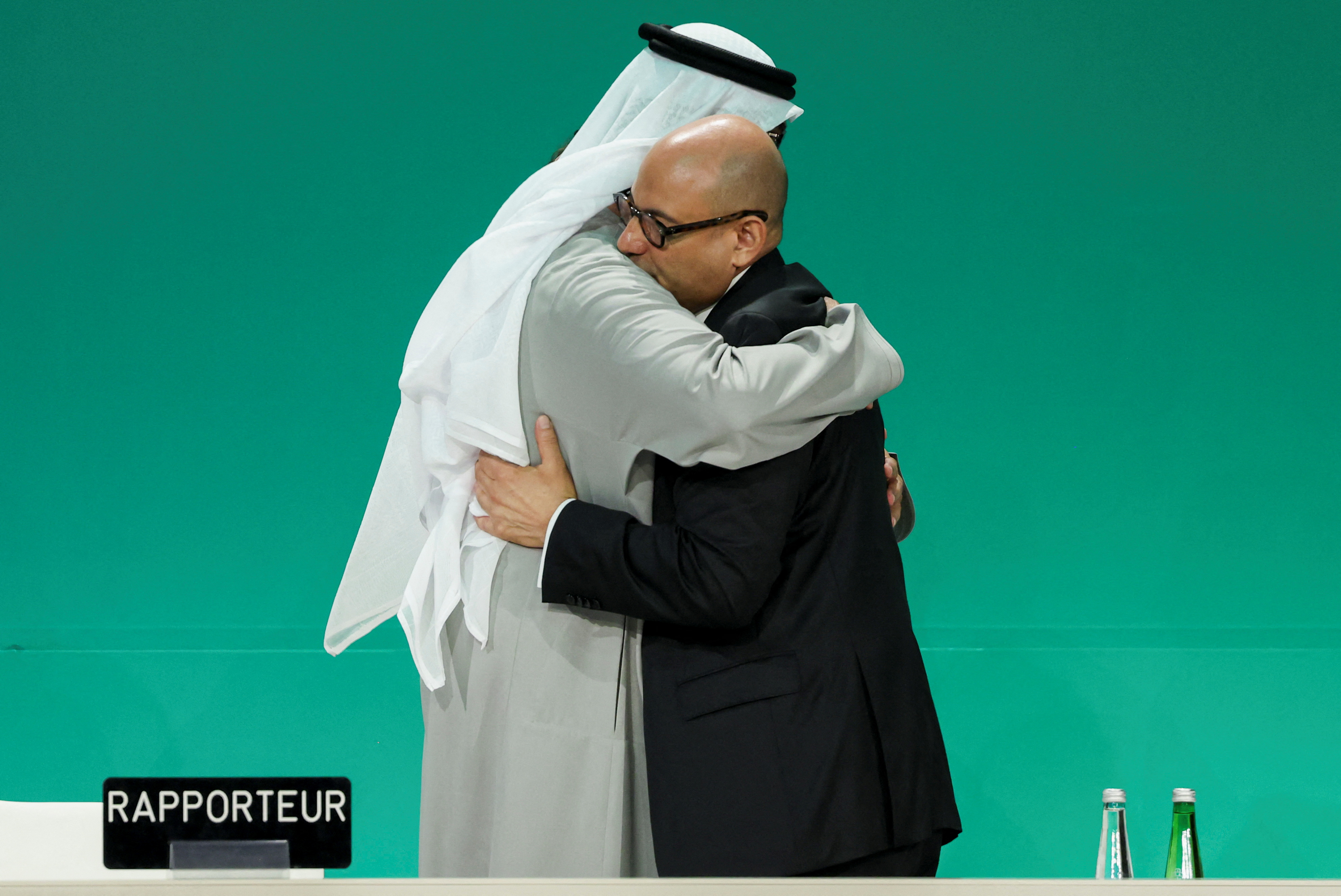In a landmark deal the COP28 climate summit in Dubai adopted unanimously the Global Stocktake text Wednesday morning. For the first time, it calls on all countries to move away from the use of fossil fuels and recognises the need for deep, rapid and sustained reductions if the world is to limit temperature rises to 1.5oC. But it does not call for a phase-out, that more than 100 countries pushed for.
The COP28 president, Sultan Al Jaber, gaveled the agreement through to a standing ovation. He said: “From the bottom of my heart, thank you. We have travelled a long road together in a short amount of time. We have worked very hard to secure a better future for our people and planet. We should be proud of our historic achievements. My country, UAE, is proud of its role in helping you move forward. We have delivered a comprehensive response to the Global Stocktake. We have delivered a robust action plan to keep 1.5oC in reach. It is a balanced plan that addresses emissions… it is built on common ground. It is strengthened by full inclusivity. It is a historic package to accelerate climate action. It is the UAE consensus.”
The COP did what it has always done. An agreement has been reached, and a historic one at that.
Fossil fuels, that include oil and gas, are in a COP agreement for the first time.
The text calls on countries to “contribute” collectively to global efforts to reduce climate pollution, but in a way that they see fit and calls for “transitioning away from fossil fuels in energy systems, in a just, orderly and equitable manner … so as to achieve net zero by 2050 in keeping with the science.” But a reference to transition fuels can be interpreted to include natural gas.
The agreement also includes tripling of renewable energy capacity globally by 2030, launch of the ‘loss and damage fund’, action on methane emissions, accelerating efforts to reduce coal use, and accelerating technologies such as carbon capture and storage that can clean up hard-to-decarbonise industries.
John Kerry, the US climate envoy, summed up the sentiment at the COP: “For the first time in the history of our regime, the decision calls for transitioning away for fossil fuels to achieve net zero by 2050. We would have liked clearer language about the need to begin peaking. We would know this was a compromise between parties.”
The EU commissioner for climate action, Wopke Hoekstra, said the deal “could well be truly consequential…For the first time in 30 years we might now reach the beginning of the end of fossil fuels.”
In reality, this deal will not spell the end of fossil fuels. It is a first step in that direction, but it will take a very long time. As it stands, it would allow the use of oil and gas even beyond 2050. It states that oil and gas producers and countries are free to follow their own paths to net zero, “in a way that they see fit”. We should remind ourselves that fossil fuels still provide about 80 per cent of the energy the world consumes, with global energy consumption still growing and no sign yet that oil and gas demand is anywhere close to peaking.
This is not the end of it, but only the beginning. We will hear a lot more about the future of fossil fuels next year when the COP is held in Baku, Azerbaijan.
Nevertheless, this deal represents significant progress for those that want to limit global warming and tackle the climate crisis. As Al Jaber said: “We must now take the steps necessary to turn this agreement into tangible actions.”
Dr Charles Ellinas is a senior research scholar at the Global Energy Centre of the Atlantic Council







Click here to change your cookie preferences